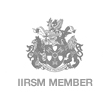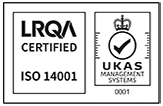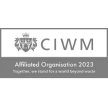
There’s a chance you may be sipping a takeaway coffee as you read this. After all, 10,000 are consumed every two minutes in the UK.
The alarming environmental issues associated with takeaway coffee cups continue to build momentum as part of wider waste issues that have leapt to the top of the political, public and media agendas. In 2011, a Which? Report found that the UK alone uses more than 2.5 billion disposable hot drink cups every year, so that figure is likely to be substantially more now, with some groups estimating we could be using as many as 5 billion throwaway cups annually. These volumes are putting serious strain on our waste systems and our fragile environment is getting damaged as a result. An increasing number of companies are stepping forwards to help try and solve the problem, including cup manufacturers and coffee retailers, but it’s an enormous problem to solve that will mean shifting consumer attitudes and habits, and changes in coffee cup manufacturing and recycling processes.
What’s the problem with coffee cups?
Many disposable coffee cups proudly display a recyclable logo, so many consumers put their used coffee cups in recycling bins. A 2017 report by the Environmental Audit Committee highlighted that 80% of consumers believe their disposable cups are being recycled. The truth is, the composition of disposable cups means they are very difficult to recycle and the recyclable logo applies only to the removable cardboard sleeve, not the cup itself. There are very few facilities in the UK that can undertake the process required to recycle throwaway cups because the paper exterior is fused with polyethylene to make the cup waterproof, a plastic that cannot be separated out again in a standard recycling plant. Because of this, the vast majority of single-use coffee cups end up in landfill or disposed of in an Energy from Waste facility like ours at Rabbit. To compound the environmental issue, there’s the shocking fact that an estimated 500,000 coffee cups are dropped as litter every single day in the UK.
The 2017 report by the Environmental Audit Committee suggested that a tax could be implemented to improve the recycling and reprocessing facilities required to regenerate coffee cups. This so-called “latte levy” would impose a 25p charge on disposable coffee cups, with an outright ban proposed on non-recyclable cups from 2023.
What’s the solution for coffee cups?
The UK’s taste for coffee shows no sign of abating. There are forecast to be 30,000 coffee shops in the UK by 2025, and that figure doesn’t include all the other outlets that provide takeaway drinks. With recycling disposable cups proving so difficult, many retailers have taken the decision to reduce or eradicate consumption of disposable cups instead. In April 2018, Waitrose announced that disposable cups will be removed completely from their stores, requiring customers to bring in their own reusable cup for takeaway drinks instead. Coffee chains are also encouraging customers to bring their own cups by providing discounts such as Pret a Manger’s 50p discount for those that don’t require a disposable cup. The evidence so far suggests that it could be an effective technique – Argos reported it had sold 537% more travel cups in December 2017 than in December 2016. Starbucks introduced a 5p charge for disposable cups in London as part of a three-month trial, replicating the effective plastic bag tax that was introduced in 2015. But with the UK’s ever-growing taste for coffee on-the-go, a solution to the recyclability of disposable cups is needed too, and manufacturers are seeing what can change in the composition of coffee cups. Companies such as Frugalpac have introduced cups that are more easily recycled by inserting a removable plastic liner instead.
It will take a concerted effort from all parts of the industry, and attitudes of consumers, to solve the coffee cup crisis. In the meantime, billions more throwaway cups will be heading for landfill.
Contact Rabbit today for more information about recycling and Energy from Waste. Reach us on 01903 762020 or email info@rabbitgroup.co.uk.




